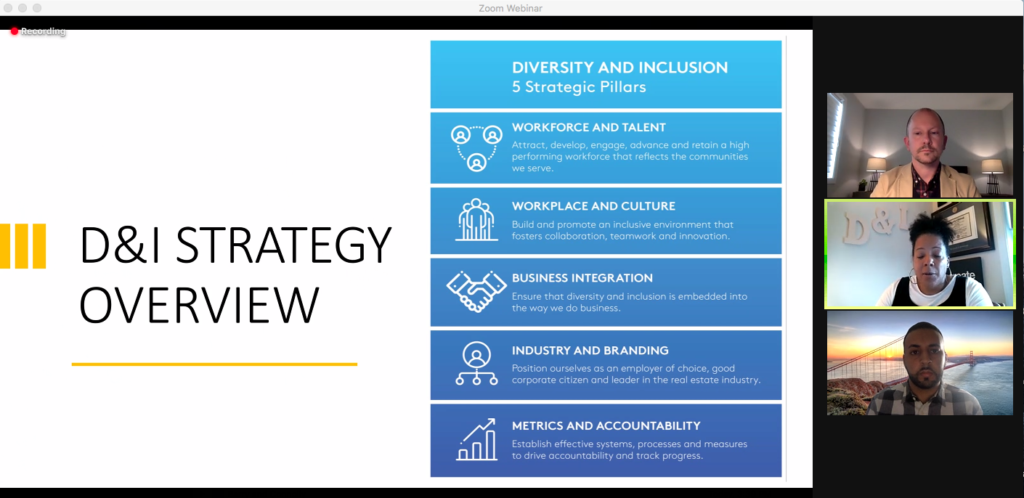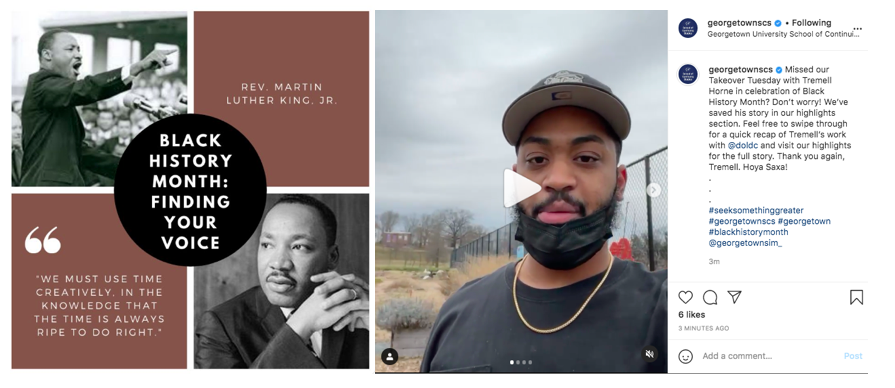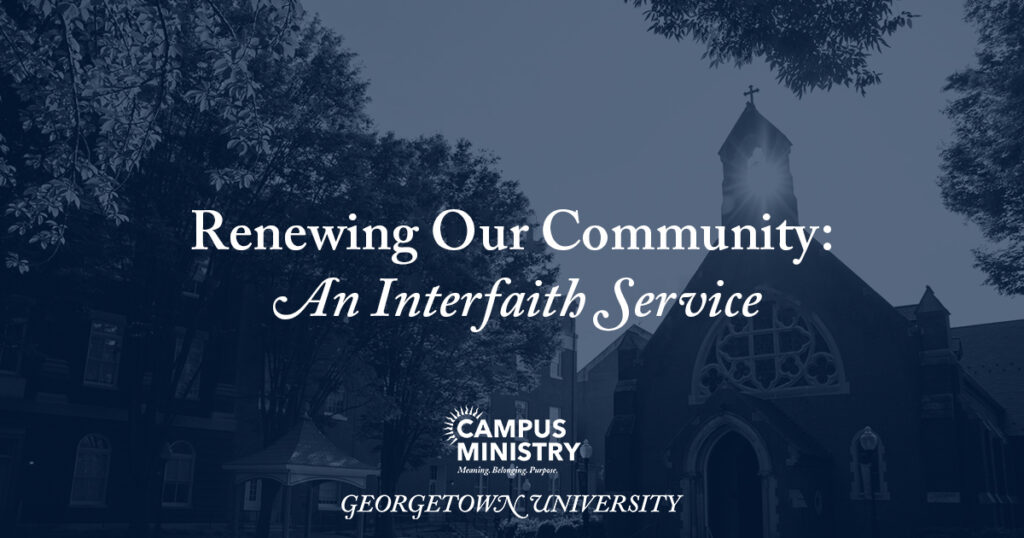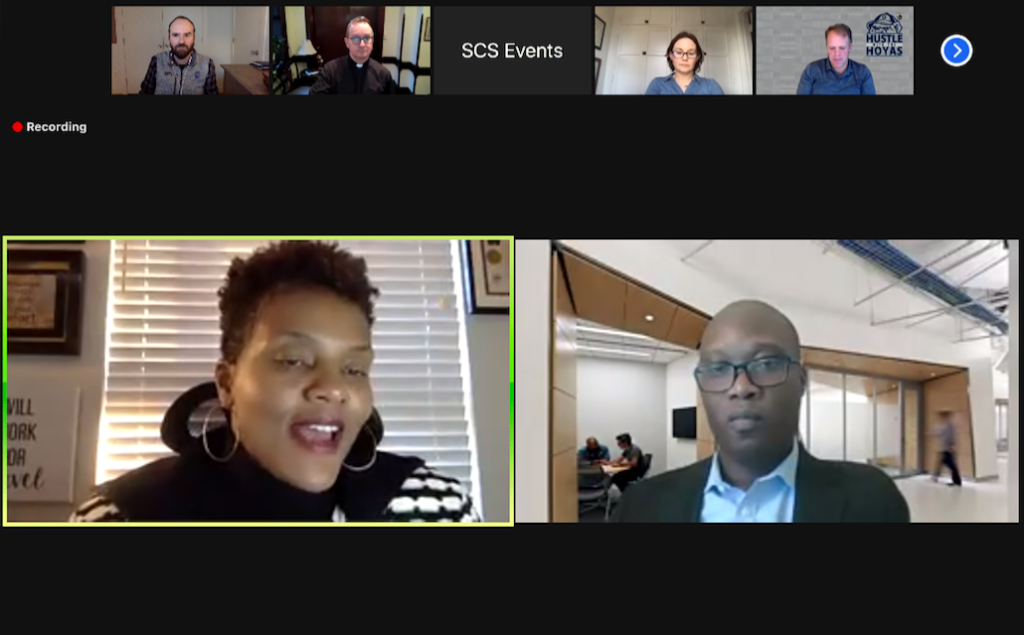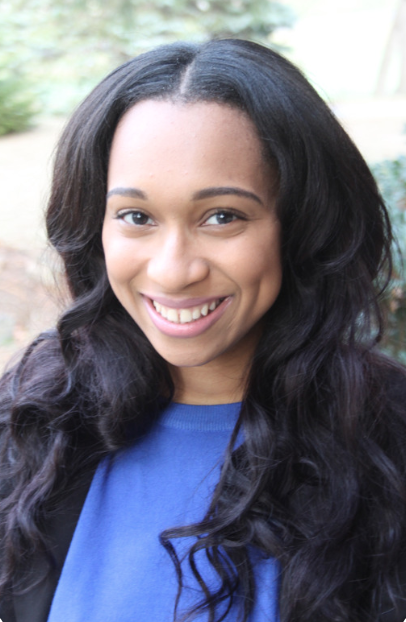
This week, Mission in Motion sits down with Rondha Remy, SCS Program Director for the Business and Management degree programs. Rondha discusses her approach to providing student support, her reflections on the ongoing work of diversity, equity, inclusion, and anti-racism at Georgetown, and advice about why it is so important to take time and space for rest and recharge.
1. Tell us a bit more about yourself. What brought you to Georgetown SCS and how does your role at the School align with your professional vocation and mission?
I am the Program Director for the Business and Management programs serving students within the Higher Education Administration, Global Hospitality Leadership, and Supply Chain Management MPS degree programs.I primarily assist students in navigating their degree progression and pairing them with various resources available within the Georgetown community or within the field. I work collaboratively with my faculty directors, our program manager, and assistant dean, to ensure that we are able to offer a great overall student experience.
Prior to my time at Georgetown, I worked in various student affairs positions at other higher education institutions and at a non-profit education organization servicing K-12 students. My experience sparked a need to familiarize myself with the potential threats to a student’s experience within the classroom and how I can best serve them there. I truly want to learn how to be a resource to students throughout all aspects of their educational journey. Here at Georgetown, I feel empowered to continuously act as a change agent/pioneer in how we service our students holistically.
2. In addition to serving on the leadership group of the SCS Diversity, Equity, Belonging & Inclusion Council (DEBIC), you have been participating at Georgetown in the Doyle Conversations about Anti-Racism in Higher Education. Can you share some of the most important insights from these discussions?
The discussions were empowering because they gave me comfort to know that many departments across the university are incorporating new initiatives or ways to educate the community in relationship to diversity, equity, and inclusion work. One term that was used frequently to explain the notion of “digging deeper” in a conversation was interrogation. This wording may not have been intentional in their presentation but it was a word that I took notice to.
We all understand interrogation. We know that it is intentional questioning to unpack a thought/action. “Digging deeper,” typically used in student affairs jargon, gives a passive tone while “interrogation” gives an active tone which I believe is important when we think about this work. We need to actively think about why we have certain assumptions and why we participate in certain behaviors. Once we interrogate these thoughts/behaviors we are able to recognize, educate, and create new thinking/behaviors.
3. Your staff responsibilities include advising students. As you reflect on the future of your approach based on advising students over the last year of global pandemic, what lessons will you carry forward with you in this student-facing work?
Intentional follow-up is extremely important to nurture relationships and help students remain focused on their goal/investment. Whether it’s follow-up with new information on new policies set by the School, following-up on a conversation about internships with a link to a position that was shared with you, or just following up to congratulate them on their family addition because you remember their child was due sometime that month. Intentional follow-up adds an important human touch to the relationship in a time where human touch can be problematic.
4. What one message, takeaway, inspiration, or challenge would you like to offer readers?
At times you need to step back in order to fully recharge! AND THAT’S OKAY!
We know the fastest way to charge our phone is to put it on Do Not Disturb or Airplane mode. You are not easily distracted by the notifications and your phone data is not being used. This allows your phone to focus on one thing — charging the battery. Once charged, you can move freely and have the power to do all the things you want to do.





